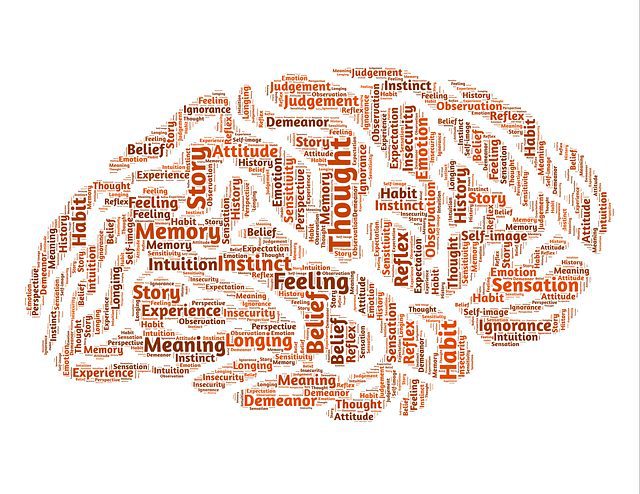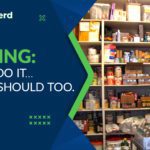We’ve talked some on our blog about how, actually, prepping is not a new concept. If you think about it, over the course of human history, preparing for potential times of disaster or famine has been normal and even necessary. It’s only been in the last few decades that a prepper mindset has taken on a reputation of being paranoid or overly concerned about the future.
So what changed? How did we go from sustainable homegrown produce and livestock to self-checkout aisles and takeout food? Why did March 2020 catch us so off-guard and cause empty shelves of toilet paper and pasta at the grocery stores?
Lessons on the Importance of Preparedness
If we look at the last few periods in American history, it becomes pretty evident how the shift happened. There was certainly a shift when people started congregating in cities during the Industrial Revolution, and as agriculture began taking a backseat to industry, people started to rely on shops and shipping for their needs. However, this only begins to tell the story of how preppers shifted from the majority of the population to the minority.
The Great Depression taught people a hard lesson in relying on supply chains for their necessities. The Greatest Generation was shaped by the uncertainty of a crashed economy in their youth, and for that reason, gained a reputation for frugality and preparedness throughout the rest of their lives. Grandchildren of this generation shook their heads as adults at their grandparents’ habit of eating stale bread or living on cheap bulk foods like beans for dinner and oatmeal for breakfast. This generation’s unique experience of living through an economic depression and then World War II presented them with the stark reality that no one but you is responsible for your survival.
The next few eras in American history would continue to shape people’s mindsets when it came to personal responsibility for preparedness. People began to adjust to rationing during World War II, understanding that scarcity required strategy, and that feeding their families required some planning ahead and creativity. When Americans watched the London Blitz of 1940-1941, they saw the reality of the unpredictability of war, and the result was Roosevelt’s formation of the Office of Civilian Defense. This was created with the purpose of helping Americans prepare for war, and did so by educating and equipping local communities with preparedness resources. Thus preparedness kits were introduced, which were quite rudimentary, often a fireproof barrel with blankets, water, and crackers inside. The important thing is, that disaster preparedness was touted as normal and important, with local communities prepared to resource one another in case of disaster. (Source)
On the heels of World War II, the Cold War took preparedness to another level with bomb drills, shelters, and prepped supplies. A 1961 episode of the classic series, “The Twilight Zone,” entitled, “The Shelter,” displays a family with a fallout shelter full of supplies who staves off their unprepared neighbors during the threat of foreign invasion. We can’t be too quick to write this cautionary tale off as fantasy – the reality is, it’s a picture of the time. Some people took the possibility of war and nuclear attacks seriously and prepared for the safety of their families. Others didn’t see the need to do so. The Cold War reached a climax in the Cuban Missile Crisis, which again proved to people the importance of being ready for a disaster beyond their control to strike.
FEMA Will Take Care of Us… Or Will It?
Preparedness took another hit in 1979 when the Federal Emergency Management Agency, or FEMA, was formed under President Jimmy Carter. As the country healed from the barrage of threats of the previous decades, the country was looking for a way to centralize support for Americans experiencing natural disasters or large-scale emergencies that overwhelmed local relief agencies. With the founding of FEMA, disaster preparedness shifted from the responsibility of the individual to the responsibility of the federal government.
While FEMA became a valuable resource, they continue to recommend that all Americans prepare to be self-sufficient for at least three days. FEMA has recently incurred criticism repeatedly after disasters because they can’t arrive immediately, and supplies are often in short order. Observing these situations caused some to see the importance of taking preparedness into one’s own hands. Yet according to a 2015 FEMA report, although 80% of Americans live in counties that have experienced a disaster, around 60% of Americans have no emergency plan in place. (Source)
The Current State
If one were to make a timeline of prepping in America, 2020 would certainly command a prominent place. FEMA’s 2021 disaster preparedness survey reports that 2020 brought a 6% increase in people preparing for the unexpected (now up to 68%), with 81% of respondents reporting to have gathered supplies, 65% having sought preparedness information, and 48% have created an emergency plan (Source). More people have also reported preparing financially for disaster.
This may not reflect the number of people who would identify as “preppers”, nor represent people who are taking the level of action that the prepper community would expect a “prepper” to take. But the good news is that more people are accepting personal responsibility for their own disaster preparedness, and there’s a renewed interest and respect for those who take preparedness and self-sustainability seriously.
Prepping has lost much of its stigma following the lockdowns and quarantines that COVID-19 brought with it. People who mocked preppers before surely felt the panic of seeing empty shelves where toilet paper, pasta, rice, and canned goods had been just days before. The breakdown of the supply chain and the panic of wondering when goods would be restocked had many people understanding, potentially for the first time, the peace of mind that comes with being ready for anything.
Conclusion
One thing has rung true throughout history – prepping is not solely for the wealthy, the paranoid, or the overly cautious. Being ready for anything, and taking responsibility for the survival of yourself and your family is simply, as it has always been, the smart thing to do.





Thanks for this history lesson–we can learn a lot from the past.
Couldn’t agree more! Thanks for being here Sue!
Very interesting, thank you.
I think the infantilising of society has also played a part in the lack of preparedness; people are treated like children (look at the top movies for the last decade or so, all basically kids films) and that permeates throughout all walks of life, including food and shelter. So many adults now remain with their parents (for whatever reason) and stay like baby birds waiting to be fed. Schools do not teach kids how to think any more, so we often see people in livestreams or comments expecting to be spoon fed information.
The capacity for self-reliance is no longer deemed necessary: even 24 hour shop opening contributes to it. Videos show partially empty shelves, but growing up in the 70s that’s what shops looked like before every bank holiday, and shops would usually shut for three or four days over Christmas.
People have become used to whatever they want being available whenever they want it, and not only that, a lot of the time it’s provided by somebody else (govt., parent, food bank).
Great insights! Thanks for sharing!
You are sadly correct.
My husband, son and I recently completed a course, and it is surprising to me that all of the answers are provided and if someone is having trouble grasping the concepts they are just basically given the answers, instead of actually asking them to do their own research to actually learn the subject. Gone are the days where we would learn over many years and much trial and error. There is no longer an incentive to work hard to master a task.
I feel as preppers a lot of newcomers think it would be as simple as stocking a little extra food and having a bug out bag. I hope that those of us that are further along should encourage others to look toward self sustainability as a way of life. That way they will always have the knowledge to survive and also help others :-)
Thank you for your thoughtful reply Winter. Glad you’re here!
Good to learn the facts and information. A quick rundown. Useful for everyone. Easy and prepared.
Glad to hear it was helpful!
love this site you guys are the best
Thanks for that Michael. We’re fueled by this awesome prepping community, and on a mission to help people be prepared for what’s to come.
Happy to hear any requests for future blog topics!
great info!
Thanks Bradley. Glad you found it useful!
It’s also good to be prepared
We can always take the next step in preparedness!
Must always think ahead
Absolutely!
I enjoyed reading this and agree wholeheartedly. The statement, no one but you is responsible for your survival, is indeed true.
I appreciate your comment Cathy!
Prepping has now become the way of the world for all of us.
Those with our eyes open!
I’m glad to see people are taking more seriously preparedness. With climate change, natural disasters and threats to our country, it is very vital to our well-being to always be cautious.
Couldn’t agree more!
I think prepping has lost of some of it’s stigma to only a small portion of the population. I showed my friend my expanded pantry and all she said was …. what. She thinks what she has is prepping but I figure at least she’s storing food.
I hear you. I’ve actually be shocked when I’ve tested the waters with certain people. There are LOTS of people who are prepping, but wouldn’t label themselves as a “prepper”. Thanks for the comment!
i need to get ready 0
I’d suggest deciding on a realistic goal, in terms of days of food / supplies on hand, and deadline for it. Then chip away until you get there.
Our Ultimate Prep System is a great way to track your progress!
Excellent
Thanks for checking out the post! Glad you found it useful.
always have to be ready. Can’t wait for others to help
Absolutely!
With ” on demand” supply chain gives us max 3 days for “standard ” emergency such as natural disaster, thinking this is completely insufficient for economic crisis. People may be more helpful if knew it was a matter of thinking just do what you can til help arrives with expectation things will eventually go back to normal. Different scenarios with whole country in crisis very different scenario. Many still think no big problems which is bad situation. Feel like if everyone prepared, people wouldn’t fear helping out a stranger so much. But bc there will be last minute desperation by most who wont be prepared at all, you cant let on now or sometimes even share info bc people will still not prepare but remember you are prepared.
Great points!
Thanks for sharing I am not sure our world was even halfway ready for the last two years but hopefully we will be more prepared for the next time.
Agreed!
Very informative article. The information helps in many ways.
So glad to hear it Cassandra. Thanks for the comment!
I’ve always had the feeling that solo was the only option, as much as teamwork can allow a lot I just can’t trust people.
Trust is definitely not a decision to take lightly. The approach I take is… trust a little, verify, trust a bit more, verify, etc, etc.
Can’t rely on Fema
Especially if it’s a true SHTF
I agree. I also have heard that in case of food shortage, FEMA could drop off emergency food to the fully “immunized” only. Take care of yourself and your people.
Scary times – all the more reason to be thinking **self-sufficiency**
Great info
Thanks Donna – glad to hear it’s helpful
I use to be really big into so glad you have came along and remind me again to ned to keep doing it. Great aite love all the info..
I appreciate the comment Diane! I’m happy to be of help.
This is very interesting, thank you for the information!
My pleasure, Rena. Thanks for being here!
sounds good
Thanks for checking out the blog Jason!
Scary we never know if anyone will be there to help anymore to many people in the same boat everyone for themselves. So best to do what you can even it is small its better to be semi prepared for things then not prepared at all.
I agree Jenny! I mean, when are we ever really “done” being prepared, right?
Great information to reflect on, Thankyou! :-)
It’s my pleasure Winter!